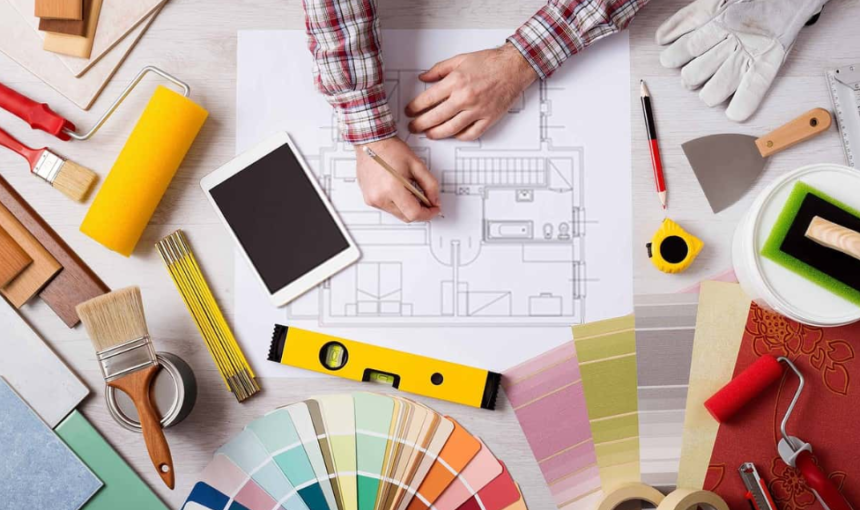12 Skills You Need to Be a Successful Interior Designer- Are you passionate about transforming spaces into beautiful and functional works of art? Interior design is a profession that offers limitless creative opportunities. However, to truly excel in this field, you need a diverse set of skills.
In this article, I’ll show you the 12 essential skills that can propel you to success as an interior designer. From creativity to budgeting and client relationships, each skill plays a vital role in shaping your career.
what it takes to thrive in the world of interior design.
Creativity: The Core Skill
Interior design is an art form, and at its core lies creativity. Your ability to envision and bring innovative ideas to life sets you apart as a designer. In a world where originality matters, your creative prowess is your greatest asset. Whether it’s choosing the perfect color scheme, arranging furniture, or conceptualizing unique layouts, creativity is the driving force behind successful interior design. The more you nurture your creative side, the more captivating your designs will become.
Space Planning and Organization
Effective space planning and organization are fundamental skills for interior designers. Your clients rely on you to make the best use of their spaces, whether it’s a cozy living room or a spacious office. Your talent for arranging elements in a way that maximizes functionality and aesthetics is what makes your designs truly remarkable. Understanding the flow of spaces, traffic patterns, and the efficient use of every square foot are key aspects of this skill.
Color Theory and Selection
Color is one of the most potent tools in an interior designer’s toolkit. Understanding color theory, how different hues interact, and the psychological impact of colors is crucial. Your ability to select the right colors for walls, furniture, and accents can set the mood and tone of a room. Whether you’re creating a tranquil bedroom or a vibrant workspace, the right colors can make all the difference.
Furniture and Material Knowledge
An in-depth knowledge of various furniture styles and materials is essential for creating functional and aesthetically pleasing interiors. Your clients look to you for guidance in selecting the perfect pieces that match their vision and lifestyle. Additionally, understanding materials, from fabrics to finishes, allows you to choose the best options for durability and aesthetics in different settings.
Communication and Client Relationships
Interior design is a collaborative process. Effective communication with clients, contractors, and suppliers is vital for success. Building strong client relationships is equally important. Your ability to listen, understand your client’s needs, and communicate your ideas clearly can make or break a project. Trust and open dialogue are the cornerstones of a successful interior design career.
Project Management
Every interior design project involves multiple moving parts. From scheduling to budgeting and coordinating contractors, effective project management is essential to keep everything on track. Your clients rely on you to ensure that their projects are completed on time and within budget. Developing strong project management skills will help you meet and exceed their expectations.
Attention to Detail
The devil is in the details, and as an interior designer, you must pay attention to them. Whether it’s choosing the right hardware for a cabinet or ensuring that every element aligns with the design concept, meticulous attention to detail is a skill that can elevate your work. Clients appreciate the care and precision that goes into creating a seamless and polished design.
Sustainability and Environmental Awareness
In today’s world, sustainable design practices are in high demand. Being environmentally conscious is not just a trend; it’s a responsibility. Understanding sustainable materials and practices and integrating them into your designs can set you apart as a designer who cares about the planet. Clients appreciate designers who can create beautiful spaces while minimizing their environmental footprint.
Technical Proficiency
Interior designers need to be proficient in various design software and tools. From 3D modeling software to graphic design tools, your technical skills can streamline the design process and help you communicate your ideas effectively. Keeping up with the latest technology and software updates is crucial in this fast-paced industry.
Budgeting and Financial Management
Managing budgets and finances is a skill that can make or break your interior design projects. Clients have specific budgetary constraints, and it’s your job to create designs that align with their financial goals. Understanding cost estimates, controlling expenses, and finding creative solutions within budgetary limits are skills that will earn you the trust of your clients.
Market Research and Trends
The world of interior design is always evolving. Staying ahead of the latest trends and market shifts is essential to deliver designs that are both timeless and contemporary. Regular market research keeps you informed about emerging styles, materials, and design preferences. Being a trendsetter rather than a follower can set you apart in a competitive field.
Time Management
Meeting project deadlines is a hallmark of a successful interior designer. Time management is essential to ensure that each phase of a project progresses smoothly and is completed on schedule. Effective time management allows you to take on multiple projects without compromising the quality of your work.
H14: Problem-Solving Skills
Interior design projects are not without their challenges. Strong problem-solving skills are a must when unexpected issues arise. Your ability to think on your feet, adapt to changing circumstances, and find creative solutions can save a project from potential disasters.
Marketing and Self-Promotion
To succeed as an interior designer, you must be your own best advocate. Marketing your skills and self-promotion are key to growing your client base. Use your portfolio, social media, and networking to showcase your work and attract new clients. Your ability to market yourself effectively can significantly impact your success in the industry.
Final Thoughts
Being a successful interior designer requires a unique blend of creative and technical skills. From creativity to project management, attention to detail, and staying updated with industry trends, each skill plays a crucial role in shaping your career.
By honing these abilities and continuously learning, you can set yourself on a path to becoming a sought-after and accomplished interior designer.
RELATED: Full-Service Interior Design: Make a Living as an Interior Designer
Frequently Asked Questions and Answers
1. How can I improve my creativity as an interior designer?
Experiment with different design styles and explore new ideas to nurture your creativity.
2. What is the role of color theory in interior design?
Color theory helps you choose the right colors to create specific moods and aesthetics in a space.
3. Why is communication important in interior design?
Effective communication ensures that your clients’ needs and preferences are understood and incorporated into the design.
4. How can I stay updated with the latest interior design trends?
Follow design magazines, blogs, and attend industry events to stay informed about the latest trends.
5. What are some sustainable design practices in interior design?
Sustainable design practices include using eco-friendly materials, energy-efficient lighting, and reducing waste in design projects.
6. How do I build a strong portfolio as an interior designer?
Include a variety of your best projects, highlighting your creativity and attention to detail.
7. What software is essential for interior designers?
Software like AutoCAD, SketchUp, and Adobe Creative Suite are commonly used in the industry.
8. How can I manage project budgets effectively?
Create detailed budgets, track expenses, and find cost-effective solutions to stay within budget constraints.
9. What are some time management strategies for interior designers?
Prioritize tasks, set realistic deadlines, and create a project schedule to manage your time efficiently.
10. Why is problem-solving important in interior design?
Interior design projects often face unexpected challenges, and problem-solving skills are essential to overcome them.
11. How can I effectively market myself as an interior designer?
Use your portfolio, social media, and networking to showcase your work and connect with potential clients.
12. What should I consider when choosing sustainable materials for a project?
Look for materials with eco-friendly certifications and consider factors like durability and recyclability.
13. How do I handle difficult clients in the interior design industry?
Effective communication, patience, and a focus on problem-solving can help manage challenging client relationships.
14. What are the key elements of successful project management in interior design?
Key elements include scheduling, budgeting, contractor coordination, and ensuring that the project stays on track.
15. How can I stay organized when working on multiple interior design projects simultaneously?
Use project management software, create a project calendar, and delegate tasks to maintain organization and meet deadlines.




